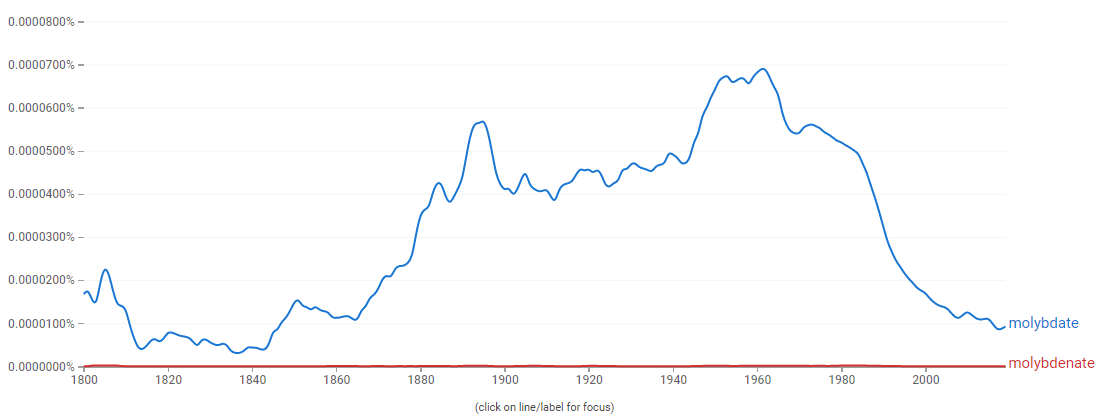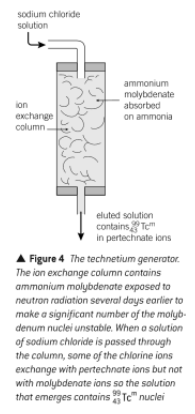Most websites (including Wikipedia) say that the anion MoO42- is called a molybdate ion, although some websites use molybdenate instead. Which one is correct, and if one of them is correct, is the other term still allowed?
-
$\begingroup$ Where did you find the term - molybdenate? $\endgroup$– Nilay GhoshCommented Jul 3, 2022 at 2:37
-
2$\begingroup$ @OscarLanzi Molybdus is just the ancient greek for "lead" (see e.g. rsc.org/periodic-table/element/42/molybdenum , britannica.com/science/molybdenum ) - I'm not aware of any mythological aspect to this $\endgroup$– Ian BushCommented Jul 3, 2022 at 7:35
-
$\begingroup$ Yes, and a Google search of "Molybdus" yields no results relating to a mythological character. $\endgroup$– Praseodymium-141Commented Jul 3, 2022 at 8:20
-
$\begingroup$ You may find my comment on this interesting. Yes, there is no mythological aspect to it. (cc @IanBush) $\endgroup$– Nilay GhoshCommented Jul 3, 2022 at 9:01
-
$\begingroup$ I have just checked Wikipedia. Note that the ion is called the molybdate ion, and the term "molybdenate" is just a redirect to it. $\endgroup$– Praseodymium-141Commented Jul 6, 2022 at 17:45
2 Answers
According to Table X of the Red Book (‘Nomenclature of Inorganic Chemistry – IUPAC recommendations 2005’), the anion name for molybdenum is molybdate.
-
$\begingroup$ Does the Table X of the Red Book say if molybdenate is allowed? $\endgroup$ Commented Jul 6, 2022 at 17:46
-
$\begingroup$ @Praseodymium-141 "molybdenate" is not mentioned in the Red Book. $\endgroup$– LoongCommented Jul 6, 2022 at 18:04
-
$\begingroup$ I guess molybdenate may be in respective forms present in non EN language variants, that may occasionally by a sneaky way backport to English, if a chemist is unsure. E.g., in Czech, "sodium molybdate" is "molybdenan sodný". $\endgroup$– PoutnikCommented Aug 26, 2022 at 16:07
If you do a Google ngram of the terms 'molybdate' and 'molybdenate', you will find 'molybdate' standing out.
No one known why the 'en' was kept when you can simply shorten it to molybd-ate instead of molybden-ate (like phosph-ate and not phosphor-ate). However, the latter didn't got totally eliminated. Some research papers(here is a recent example) and textbooks still uses 'molybdenate'. The following image is from a physics textbook published in 2020.
-
$\begingroup$ Same thing with tungstate vs tungstenate: imgur.com/75IPtBq $\endgroup$ Commented Aug 26, 2022 at 15:21
-
$\begingroup$ I assume that for many non-native speakers (and possibly some natives too), the short right forms may not feel right by their guts and if they do not know they are actually right, they may use the longer form. E.g. I have learnt English - aside of very basics - after my formal education, therefore I had later often struggles with technical or scientific terminology. $\endgroup$– PoutnikCommented Aug 29, 2022 at 8:06


